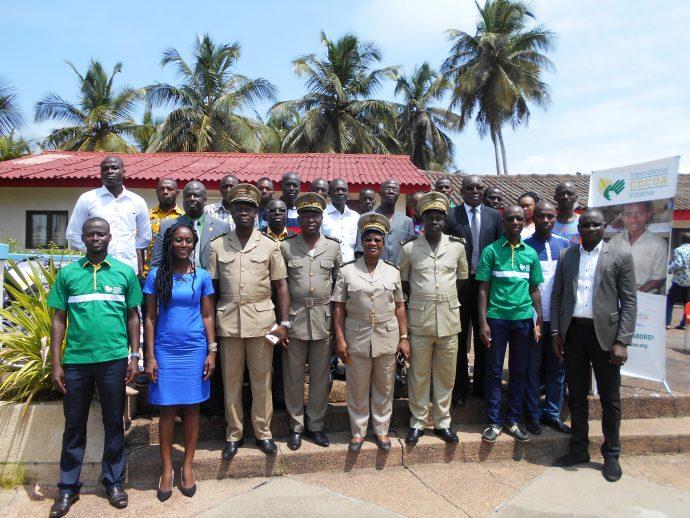ICI’s ECLIC team recently participated in a workshop with the local authorities of San Pedro, a region in the south-west of Côte d’Ivoire, to request their support for the realisation of the Community Action Plans for six local communities the project is active in. Community Action Plans (CAPs) are established in a collaborative process with each community ICI is working with in order to identify what steps need to be taken to reduce their risk of child labour and increase their livelihoods. The CAPs were presented by community members of Kouadiokro, Jeannotkro, Ichakakro, Gligbeuadji, Yankadi and Kaméadji themselves, and comprehend specific necessities such as school infrastructures, access to clean water or health services. The community members also shared their willingness to participate actively in this transformation and called attention to the potential of their communities to facilitate future projects. They pledged to a swift allocation of terrain for the construction of school buildings and the contribution of gravel and manpower. These CAP implementations – realised in a joint effort – will effectively reduce the risk of hazardous child labour in these six San Pedro ECLIC-communities.
The workshop was held under the auspices of the regional prefect of San Pedro in the presence of local and national stakeholders, including representatives from ministries in charge education, health and child protection, and resulted by the signing of an agreement to execute the CAPs as presented.

An active participant in the workshop, the general secretary of the prefecture, Madam Okou Marie-Thérèse, welcomes this initiative which will allow to “exactly identify the needs pertaining to education, the access to healthcare, the access to drinking water, the distribution of birth certificates, the implementation of Income Generating Activities (IGAs) and vocational training in our communities”. According to her, “it is a real pleasure to know that ECLIC has already achieved to establish Community Action Plans and start the process of identifying direct beneficiaries, and is planning to restore or build schools in five of the six concerned communities”. She also greeted all the efforts made by the government to improve the legal framework dealing with the issue, and especially the actions taken by the First Lady of Côte d’Ivoire, Madame Dominque Ouattara, in the context of the fight against child labour in cocoa-growing communities.
“Eliminating Child Labor in Cocoa” (ECLIC) is a four-year project funded by the US Department of Labor assisting 50 cocoa-producing communities in Côte d’Ivoire to develop and implement community action plans to combat child labour at community level. It directly helps protect 5,450 vulnerable children engaged in or at risk of child labour by providing them with conventional or non-conventional education opportunities and increasing their access to school feeding programs. It also provides livelihood services to 1,500 vulnerable households in these communities for the promotion of sustainable livelihoods.
